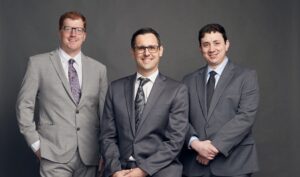 Chapter 7 bankruptcy offers a fresh start to people who find themselves buried in credit card debt, medical bills and other unsecured debt. In the bankruptcy, most of those debts are discharged, which means that you’re no longer legally obligated to pay them.
Chapter 7 bankruptcy offers a fresh start to people who find themselves buried in credit card debt, medical bills and other unsecured debt. In the bankruptcy, most of those debts are discharged, which means that you’re no longer legally obligated to pay them.
It also means that creditors and debt collectors can’t contact you about those debts, report them as late to the credit bureaus or otherwise bother you about them. An Oklahoma Chapter 7 bankruptcy lawyer at Convenient Bankruptcy can help you TODAY. Call us now at (405) 639-2099 or fill out a contact form and we’ll reach out to you.
Convenient Bankruptcy’s process makes the Oklahoma bankruptcy process as convenient on you as possible. We handle many consultations through phone call & Zoom appointments. We also encourage text & Email message communication as well as text message reminders of appointments and court appearances and court filings sent by email.
Recent Review:
“I was nervous about filing bankruptcy, but Luke and his team were extremely helpful and made me fill at ease. They walked me through every step and explained what was going to happen really well. I would 100% recommend them to anyone I know that may have to file bankruptcy. Thank you all!”
Verified Google review from Katisha D.
Some of the most common types of debt discharged when filing chapter 7 bankruptcy include:
- Credit card debt
- Medical bills
- Past-due rent and utilities
- Payday loans
- Some tax debt
- Immediate relief from financial stress
One of the most powerful aspects of consumer bankruptcy is the automatic stay. In most cases, the automatic stay stops creditor calls, debt collection letters, law suits and even wage garnishments as soon as your bankruptcy case is filed.
That means that when you get the right help, the pressure could be off in as little as a few days. Chapter 7 bankruptcy is designed to help people crippled by unsecured debt wipe the slate clean and begin again on a more solid footing.
Chapter 7 Bankruptcy Lawyer
An Oklahoma chapter 7 bankruptcy attorney from Convenient bankruptcy will prepare petitions and schedules that detail your income, debts and assets for the bankruptcy court. The court will appoint a bankruptcy trustee to oversee your case. The trustee’s primary job is to make sure that any available assets are distributed to your creditors, but most Chapter 7 filers keep all of their property. That’s because some property is exempt, meaning that it’s safe from creditors.
Exemptions vary somewhat from state to state, but they typically include things like:
- clothing
- furniture
- work tools
- a certain amount of equity in your home
- a vehicle up to a certain value
- In some states, there is also a “wild card” exemption which allows you to protect some property that might otherwise not be exempt.
Creditors have up to 60 days to object to discharge. A discharge may be entered at any point after that 60-day period expires, assuming that you have completed the required Personal Financial Management Course. Often, the entire Chapter 7 bankruptcy case is completed in as little as four months. The discharge acts as an injunction, barring creditors and debt collectors from pursuing payment of discharged debt.
Oklahoma Bankruptcy Means Test
To file for Chapter 7 bankruptcy in Oklahoma, you must pass the Oklahoma means test, which applies primarily to filers with higher incomes. If your income falls below the median for a household of your size in Oklahoma, you are not required to take the test and may proceed with filing for Chapter 7 bankruptcy.
If your income exceeds the Oklahoma median, you will need to complete the means test calculation. This will determine whether you are capable of repaying a portion of your unsecured debts through a Chapter 13 bankruptcy plan. If your monthly household income is below the median for a household of your size in Oklahoma, it is presumed that you meet the requirements of the means test and are eligible to file for Chapter 7 bankruptcy.
WE CAN HELP YOU WITH THIS
If your income exceeds the median income for a household of your size in Oklahoma, you are required to complete the means test by detailing your income and expenses. To perform this calculation, you’ll need to gather certain information from your personal records, including your current monthly income.
Your income should include virtually all sources you receive, such as business income, rental earnings, interest and dividends, pensions and retirement plans, contributions from others towards your household expenses, and unemployment benefits.
Oklahoma Chapter 7 Bankruptcy Income Limit
The household income thresholds listed below apply to bankruptcy cases filed in Oklahoma on or after November 1, 2024. These figures are typically updated every six months, so please consider this when planning. For households larger than nine members, add $9,900 for each additional family member. Accurately accounting for every household member is crucial to assess your financial situation properly. For your convenience, we have organized the household income levels into the following table:
| Number of People | Annual Income |
| 1 | $57,046 |
| 2 | $71,793 |
| 3 | $82,469 |
| 4 | $94,542 |
| 5 | $104,442 |
| 6 | $114,342 |
| 7 | $124,242 |
| 8 | $134,142 |
| 9 | $144,042 |
The Bankruptcy Discharge
The bankruptcy discharge is intended to provide people like you with a fresh financial start. Obviously, you can’t make the most of that fresh start if creditors continue to harass you or discharged debt is still appearing on your credit report.
When a creditor or debt collector violates the discharge injunction, we can reopen the bankruptcy case to request sanctions. Sometimes, the creditor will even be ordered to pay you money for violating the discharge.
Many bankruptcy law firms consider their work done when the discharge is entered, but we know that you need continuing protection. That’s why we offer a free post-discharge audit of your credit report and take quick action against any creditor who is jeopardizing your fresh start with illegal collection activity or inaccurate credit reporting.
Call us now at (405) 639-2099 or fill out a contact form to schedule an appointment with an Oklahoma City Chapter 7 bankruptcy attorney from Convenient Bankruptcy.
